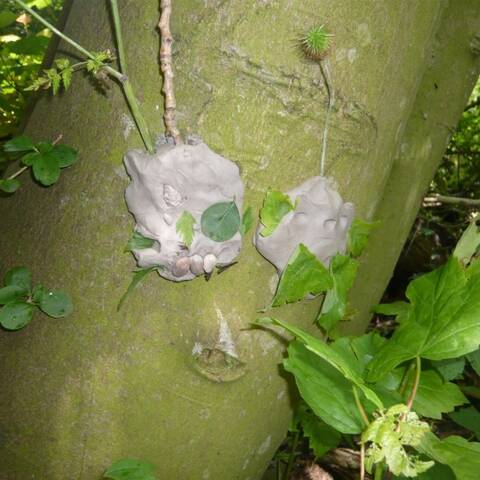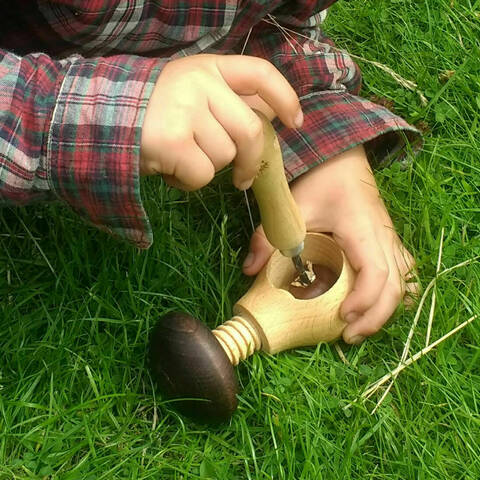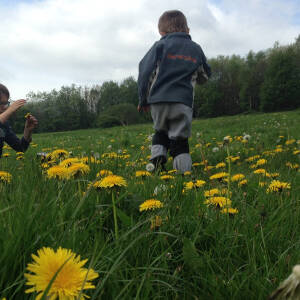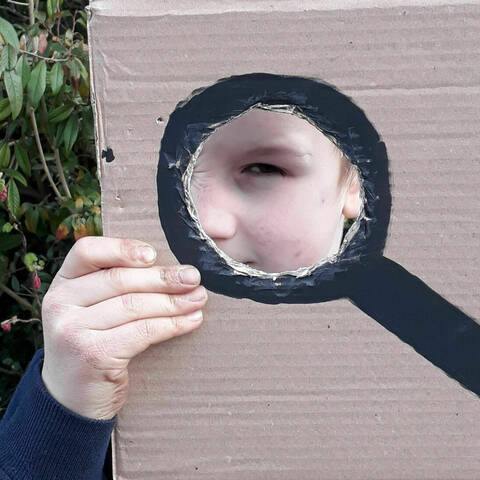Take a closer look...
Take a moment to look at the life at your feet - and the holes creatures create.
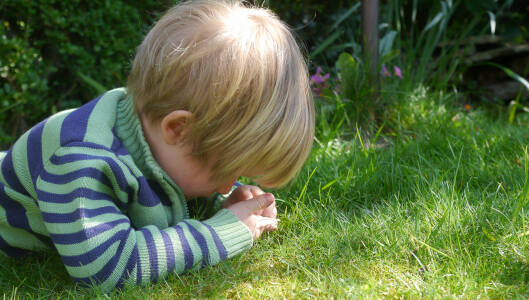
Introduction
It can be easy to forget to stop sometimes and just ‘be’ - to drag ourselves away from our busy schedules and immerse ourselves in our environment . Spend a moment sitting or lying some place with nature around you and take a closer look at the invisible world beneath your feet.
If you have children or work with them, you'll know they are wonderful role models for stopping and looking at things of interest - an ant on a food-finding mission, a worm busy at work in the leaf litter, a hidden ladybird larvae, the hum of bees when you stand under a cherry tree full of blossom.
A simple, mindful activity that can lead to so much learning.
What you'll need
- a keen eye!
This activity has been provided by
Useful items from our shop
Environmental Considerations
Consider the environmental impact of preparing, carrying out & completing this activity. Could this impact be reduced? Specific considerations for this activity could include:
- look carefully and limit habitat disturbance
- preserve life
- if you spot something unusual you might be able to add the data to a survey (see below)
Health & Safety Considerations
Follow your usual operating procedures and carry out appropriate risk benefit assessments.
Some considerations particular to this activity include:
- be aware of insect nests (ants and bees) and don’t get too close where you might be a threat
- resist the temptation to poke anything down a hole
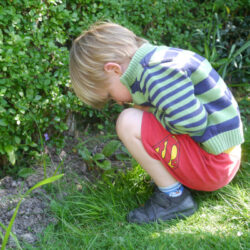
Where to look?
Anywhere….
You’ll find something if you look, even on an urban pavement or wall. Habitats exist all around us - in the soil/leaf litter, in a patch of moss, under a pile of pebbles or in a tree, in the long grass, behind a pipe...
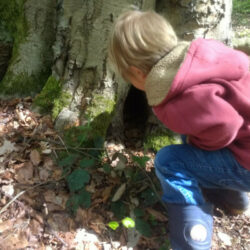
Look out for holes
A perfect outdoor provocation when you are outdoors, take a look around and see if you can find any holes.
How were the holes made? Was it a creature? Can you use your detective skills to work out what creature might have made it? Do you think they live in there?
Unleash the imaginations of the younger mind – what is beyond the hole? Are there tunnels, food stores, sleeping giants, fairies preparing for a cold winter?
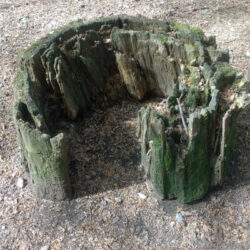
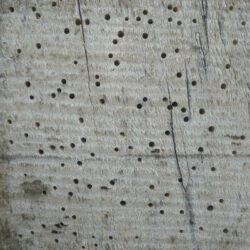
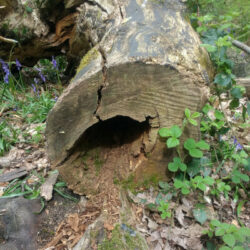
What animals might have made these larger holes?
There are many mammals that live in holes - badgers, foxes, rabbits, rats, weasels and shrews to name a few. The BBC Wildlife site has more information about identifying an animal hole.
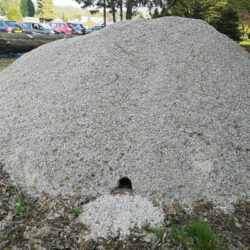
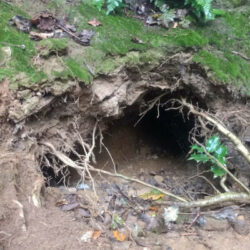
Birds too make holes and live in holes - the woodpecker pecks holes and the wren (troglodytes troglodytes – from the Greek trogle meaning mouse hole) makes nests in holes in walls and trees. The long tailed tit and house sparrow make enclosed nests with a small entrance hole.
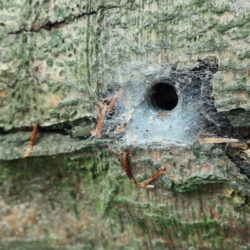
Spiders
Could this be the home of a tube-web or labyrinth spider?
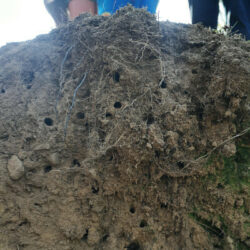
Bees
Some solitary bees nest in the ground; the mining bee always builds it’s nest in the soil. The Wildlife Trusts have an information page about solitary bees if you want to explore more.
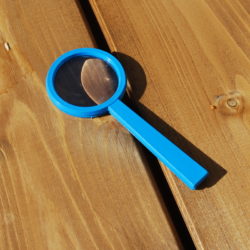
Take a closer look…
We listened to George McGavin, the British Entomologist on Desert Island Discs and he suggested that "every child should have a magnifying glass". What a fantastic idea!
Either use a handheld magnifier (usually up to x3 magnification) or, if you want more detail, try a hand lens with a higher magnification.
Use a viewfinder or magnifying glass to look for clues to help you
identify what lives in the hole.
Take it further
Record what you see
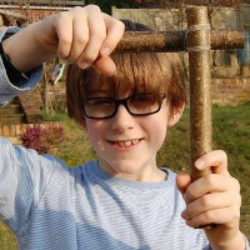
Make yourself your own lashed square frame quadrat and record your findings.
The Nuffield Foundation have all you need to know about surveys here: Biodiversity in your backyard!
Disclaimer: Muddy Faces cannot take any responsibility for accidents or damage that occurs as a result of following this activity.You are responsible for making sure the activity is conducted safely.
Key Features
- Age Range All Ages
- Duration Less than an hour
- Location Anywhere
- Season Any
-
Categories:
Outdoor Play
Curriculum Outdoors
science
Nature


